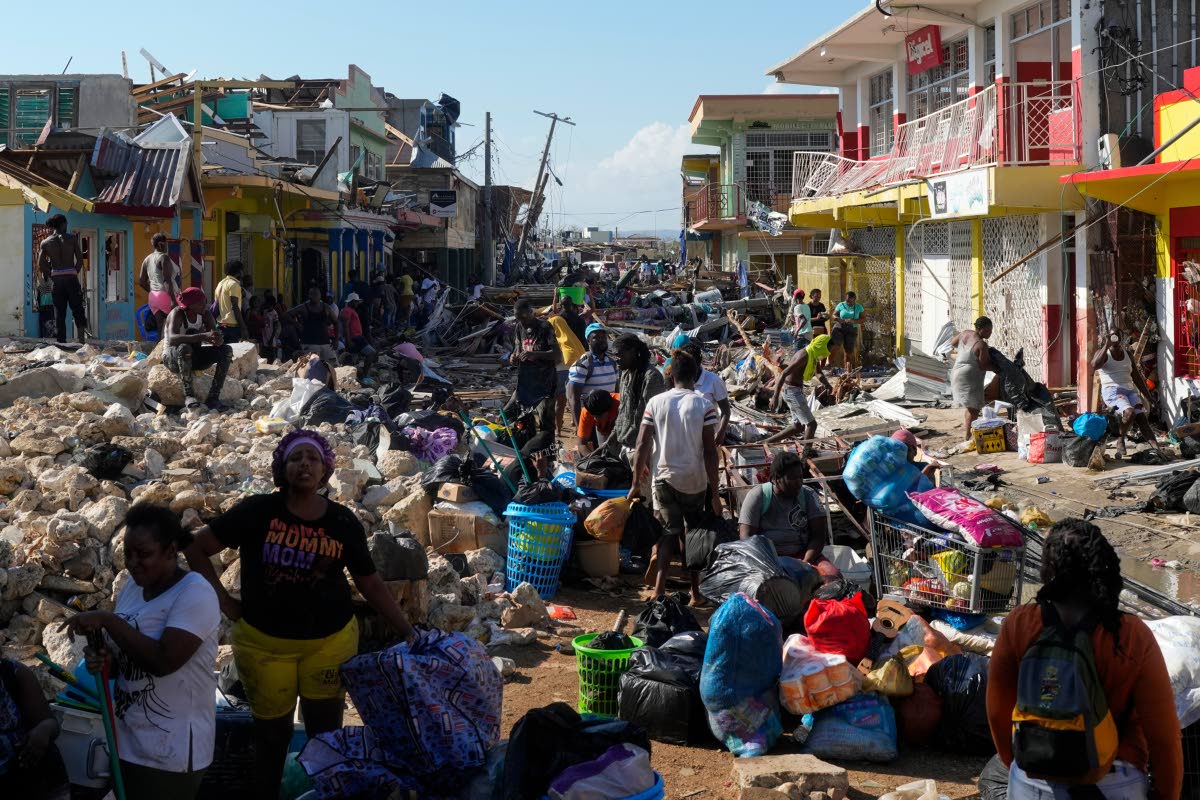Curtis Ward | Build back better and smarter: a response to environmental challenges
Loading article...
We repeat our mistakes and get the same results and at times even worse. The prophet Hosea (8:7) warned us, “You sow the wind you shall reap the storm.” Not a literal translation.
We often hear, in the immediate aftermath of a disastrous event, where severe destruction of property and loss of lives are experienced, voices raised, especially by politicians, that ‘we will build back better’.
But what does that mean, and how have we adhered to our promises or disregarded the lessons of our imprudence. Have we fulfilled our obligations and met our responsibilities? Our record is not so great, and we are often reminded of our neglect and failure of living up to the high standards we espouse.
I am not attempting to ascribe fault on any single sector of our society — the government, construction contractors and builders, or homeowners—all share in the failures we have seen over and over again.
A little over a year after the destruction wrought by Hurricane Beryl, where thousands of houses lost their roofs, Jamaica has now experienced what is perhaps the worst natural disaster in the country’s entire history.
Given the extraordinary strength of Hurricane Melissa packing sustained winds of nearly 200 miles per hour, ranked among the strongest of all time in the Americas, perhaps most of the damage could not have been avoided. Even within the perimeter of some of the most devastated areas, there are a few structures still standing. But for the rubble surrounding them we would not be able to tell these structures had withstood the strongest winds nature threw at them. Miraculous or mere luck, there are lessons to be learnt.
There are scientific predictions for fewer but stronger hurricanes in the future. Global warming and resulting climate change will continue to pose existential threats to Jamaica and other Caribbean countries, and to other island states and coastal states around the world.
There is a sacred obligation by the developed countries which contributed to, and became rich by their wanton industrialisation programmes, which are directly responsible for global warming and climate change, to help affected countries facing environmental threats to build their resilience against future environmental disasters.
And, when disasters hit, the governments of industrialised countries must act unhesitatingly and without political, ideological or prejudicial constraints to provide aid to ameliorate the effects of the disaster. Their moral obligation is another form of reparative justice that should not be seen as kindness, but as a moral and sacred obligation.
THANKFUL
Jamaicans suffering from this catastrophe–Hurricane Melissa–are thankful for the immediate responses from around the world to help alleviate their suffering. As well they should be.
But it is time that those responsible for the climate disasters which now plague our planet approach their responses not as acts of generosity, but as a priority for corrective measures to right a wrong. We are probably too advanced in the deterioration of the planet to reverse it, but we are at an inflection point where further delay in rectifying the situation is not acceptable. Shame on global warming and climate-change deniers!
Getting back to where I started. Hurricane Beryl disaster was still fresh in our minds when Hurricane Melissa hit Jamaica. There were families still struggling to rebuild their homes and their lives. The resilience of the people of Treasure Beach, and its environs in south St. Elizabeth, were an example of the strength of the Jamaican people.
Driving through the area, in April, I saw shiny new zinc on hundreds of roofs. This was testament to the response of community, a leading local NGO–Breds Foundation–families and friends abroad, including members of the Jamaican diaspora.
Having seen this, I also learned that even though the outer shell of the homes were rebuilt, the interiors of many homes were yet to return to being the home it was pre-Beryl. Furnishings destroyed were yet to be replaced. Mementos destroyed–family history–were lost forever. But the people were well on their way to recovery.
Farmers had been replanting and anticipating their first full harvest when Hurricane Melissa struck. Crops were destroyed beyond imagination. Several houses with the new shiny roofs lost them again and even more. So even with the force of Hurricane Melissa we must still ponder whether they had built back better or merely patched the roofs of their homes. With a few exceptions the latter seemed to have been the case.
SAFETY ISSUES
A very few have turned to replacing zinc with concrete. Slab roofs resist extremely high winds but raise other safety issues. A collapsed slab roof which often occurs during earthquakes are deadly. The occupants are crushed and have a very slim probability of survival.
So, while slab roofs might be an option to resist hurricanes and strong winds, they must be engineered in such a way that they would collapse to the side–slide off rather than collapse–in the event of an earthquake. There are already designs of collapsible roofs being used in other parts of the world. Given Jamaica’s straddling of tectonic faults, such engineering designs must be considered before rushing to replace zinc roofs with concrete.
The damage to Jamaica from Hurricane Melissa is now the subject of scientific studies and discussions. Dr. Goulda Downer, a Jamaican scientist, during one of these discussions with her scientific peers on the destruction of Jamaica by Hurricane Melissa told me it was suggested that the level of destruction is what would be expected from the explosion of half of a normal nuclear bomb. The discussion also included reclassification of hurricanes, adding a Category 6, and reclassifying Hurricane Melissa as a Category-6 hurricane.
The next hurricane season is less than a year away. We cannot wait. We must build back better, but we must build back smarter.
Curtis Ward is former ambassador of Jamaica to the United Nations, with special responsibility for Security Council affairs. Send feedback to columns@gleanerjm.com

